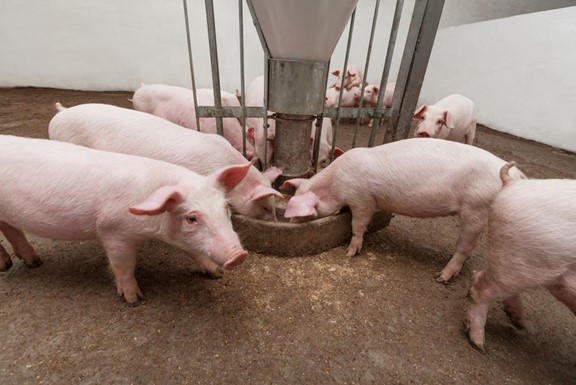



How can precision feeding save you money and time?
Research conducted on behalf of Swine Innovation Porc has shown individually formulated diets can reduce the nutritional needs of the swine herd and the nutrient content of the manure producedIn an effort to reduce the overall nutrient requirements of the swine herd, scientists working in partnership with swine Innovation Porc have been developing technology designed to mix swine rations tailored to meet the specific nutritional requirements of each individual pig.
Researchers have now completed the basic concepts needed to estimate daily nutrient requirements.
Dr Candido Pomar, a research Scientist with Agriculture and Agri-Food Canada, explains in conventional systems all of the animals get the same feed so diets must be formulated to meet the nutritional requirements of the most demanding animals where as precision feeding allows the less demanding animals to be fed lower cost less nutrient dense diets.

Precision feeding has the potential to cut feed input and waste dramatically.© Shutterstock
Dr Pomar explains:
"When we move to precision feeding then we have the possibility of identifying the nature of each pig and then to provide them daily with the diet that they need.
"Doing so we demonstrated we can reduce, by at least 25 percent, the amount of protein that we have to provide to the group overall.
"There are pigs that require a little bit more but most of them, we are feeding with less than the conventional diet – so at least 25 percent less protein to produce the same amount of pig.
"Then, because we are feeding pigs with less protein, less nitrogen, less phosphorus, we are also reducing nitrogen and phosphorus emissions.
"Today we are talking about between 30 and 40 percent reduction in the expression of phosphorus and nitrogen which is environmentally a substantial reduction".
Dr Pomar suggests as we learn more about the physiology of the pigs and how they utilise these nutrients even further reductions are possible.
As reported by Bruce Cochrane, Farmscape.Ca









